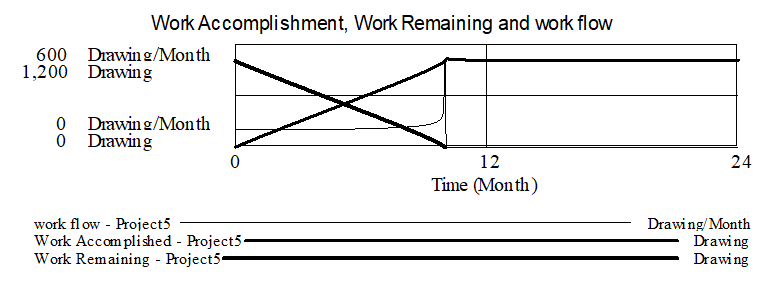So far we have been representing work flow as a constant with no feedback from schedule. The purpose of project management is to keep projects on schedule. To do this it is necessary to know what the schedule is, and adjust resources to meet that schedule.
If we have a completion date scheduled, we can compute the time we have left. Since we know the amount of work remaining, we can further determine how fast we need to work to meet the schedule. For compactness and clarity, we will represent only the structure that is changing from now on.

The equations for this are:
required work flow = MIN(max work flow,
XIDZ(Work Remaining,scheduled time remaining,max work flow))
Units: Drawing/Month
This formulation keeps required work flow less then max work flow using the MIN (minimum) function. The XIDZ (X If Divide by Zero) function divides Work Remaining by scheduled time remaining unless scheduled time remaining is 0, when it returns max work flow. It is important to use this function since dividing by zero makes no sense and will be reported as an error by Vensim.
scheduled time remaining = MAX(0,scheduled completion date - Time)
Units: Month
scheduled completion date = 10
Units: Month
max work flow = 500
Units: Drawing/Month
work flow = IF THEN ELSE(project is done,0,required work flow)
Units: Drawing/Month
Simulation of the model now gives:

The project is completed on time. work flow drifts slowly upward, then shows a sudden jump right at the end to finish the project on time.